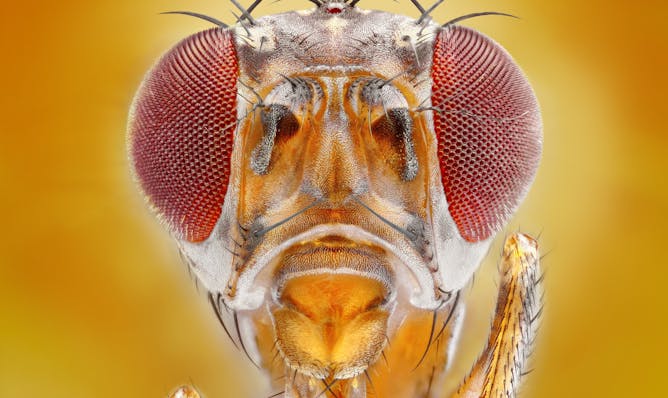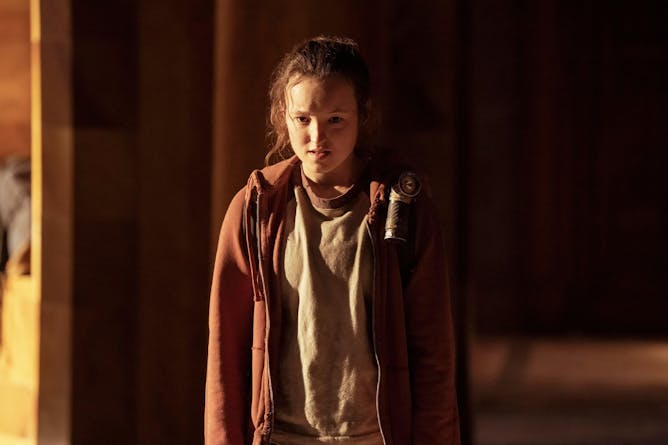|
One of the best parts of my job is working with some of the brightest and most curious minds in the world. A normal Tuesday might see me chatting with a scientist about snake clitorises, discussing headline options with a conspiracy theory expert, or planning a piece on the psychology behind social media nipple bans. But every now and then I read a draft that stops me in my tracks. An international team of scientists has mapped the most complex animal brain to date.
Previously, the only brain maps available were for simple animals, such as worms, with just a few hundred neurons – and that took years of work. Michael Winding and his team have untangled a fruit fly brain, with its half a million synaptic connections. The fruit fly is a surprisingly complex creature that can work in a team to find food and can also form good and bad memories. Because its structure is close to the human brain, understanding the fruit fly brain
may give us many clues about how our own work.
Speaking of breakthrough discoveries, geophysicist Robert Herrick has published the first proof of active volcanoes on Venus. He told National Geographic he had a lot of Zoom meetings which didn’t need his full attention during the COVID pandemic, so he started looking through radar images taken by NASA’s Magellan spacecraft in 1991. If only we had all been as productive during the lockdowns.
If you’ve been gripped by HBO’s The Last of Us, don’t miss Rebecca Drummond’s explainer of how realistic their portrayal of a fungal pandemic is.
And in the latest episode of The Conversation Weekly podcast, we speak to two researchers who examine the impact of the Iraq invasion, 20 years on.
|

|
Jenna Hutber
Commissioning Editor, Science
|
|

Michael Winding, The Francis Crick Institute
This new study could help researchers understand conditions such as autism and help fight climate change by reducing the carbon footprint of AI.
|

David Rothery, The Open University
Decades old images reveal that a volcano erupted on Venus in 1991.
|

Rebecca A. Drummond, University of Birmingham
In reality, fungal infections cause thousands of deaths each year – making the need for vaccines urgent.
|
Business + Economy
|
-
Jonquil Lowe, The Open University
To encourage the ‘economically inactive’ back to work, the government is changing pensions, childcare funding and creating more support for people with long-term illnesses.
|
|
Arts + Culture
|
-
Filippo Cervelli, SOAS, University of London
An uncompromising writer who wrote about the dark and light of postwar Japan
-
Benjamin Gearey, University College Cork; Maureen O'Connor, University College Cork; Rosie Everett, Northumbria University, Newcastle
Peatlands have always had a place in art, writing and poetry. In times of global warming these cultural reflections can help open up debate about the biodiversity and climate crisis.
|
|
Politics + Society
|
-
Martin Smith, University of York; Dave Richards, University of Manchester; Sam Warner, University of Manchester
Jeremy Hunt’s first budget day as chancellor was in many ways more about politics than economics. Historically, the Conservative party’s electoral success has been based on a reputation for economic competence…
-
Paul Rogers, University of Bradford
There are big power plays afoot in one of the world’s most contested and unstable regions.
-
Maiken Umbach, University of Nottingham
Comparisons to history risk glossing over the specific anti-Jewish hatred of the Holocaust.
-
Kelly Fincham, University of Galway
Over the past few years, most big media organisations have updated their social media rules.
|
|
Education
|
-
Nathan Archer, Leeds Beckett University
Policies which focused on improving children’s experiences while developing the early years workforce may have looked very different.
|
|
Environment
|
-
Sharon George, Keele University
Evidence suggests that Scotland’s bottle deposit scheme would prevent huge amounts of litter from entering the environment.
|
|
Health
|
-
Muhammad Waqas, University of Bradford; Syka Iqbal, University of Bradford
There are a range of reasons people with long COVID may have poorer mental health.
|
|
Podcasts
|
-
Mend Mariwany; Nehal El-Hadi, The Conversation
The U.S.-led invasion of Iraq in 2003 led to civilian death and displacement. Twenty years later, Iraqis are telling their stories of conflict and trauma as they move towards healing.
|
|
|
|
| |
|
|
|
|
| |
| |
| |
| |
| |
|
|